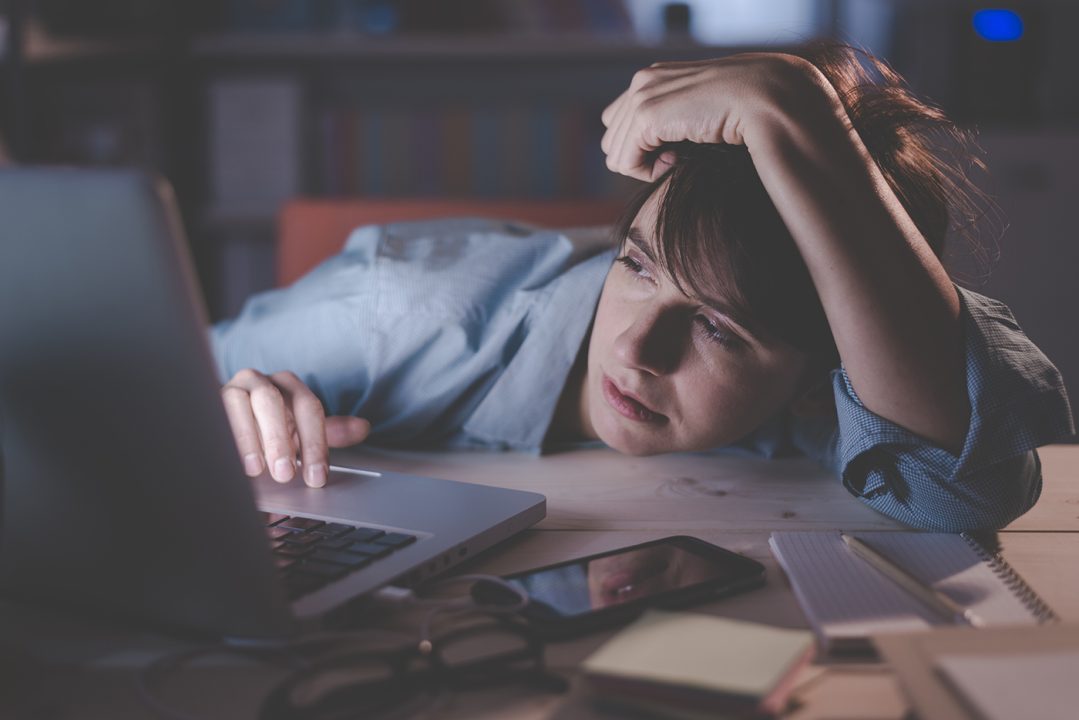

© Shutterstock
Mateenah Aba Yamoah Keelson, Ghana
The advancement of technology has led to a surge in the use of social media over the years. Platforms like Snapchat, with 187 million users worldwide and Instagram with about 600 million users, offer built-in filters that alter image appearances. For some users, filters are just a means of creating fun. At first glance, having a pair of virtual glasses or cat ears might seem harmless, however, the perception of beauty is dynamic and changing beauty standards have led to the creation of more sophisticated filters that modify images to meet these beauty standards, leaving users with an illusion of perfection that they struggle to attain every day. [1]
Studies reveal that social media usage is highly associated with psychological disorders such as depression and body image discontent, particularly amongst female users.[2] Recently, TikTok’s controversial beauty filter ‘bold glamour’ faced major criticism from concerned internet users and health experts. The filter produces a reshaped facial structure by creating a more defined jawline, slimmer nose, bigger lips, sharp cheekbones and a full glam make-up. Health experts are positive that this beauty filter as well as other similar ones not only subconsciously imprint unrealistic notions of perfection and beauty but they also reinforce “eurocentric and hypersexualized beauty standards which may lead to the objectification of women”, among other issues. [3][4]
The terms ‘snapchat dysmorphia’ and ‘selfie dysmorphia’, have been used by health experts to describe a seemingly variant of the body dysmorphic disorder (DSM-5), which is characterized by the belief of having a flawed physical appearance and the desire to look like filtered and edited images induced by the use of social media. [2][5] Cosmetic surgeons have also raised concerns of patients requesting to have their features modified to what a filtered image would look like, with some reportedly presenting actual filtered images. [5]
In 2020, a study conducted in Saudi Arabia revealed a significant connection between the usage of filters and the desire to pursue cosmetic procedures, particularly prominent amongst women. [1] Moreover, other studies have also highlighted Snapchat filters as a major influencer of contemporary beauty standards amongst women and the usage of fillers or other cosmetic procedures to more or less replicate the ‘ideal self’ presented by filtered images.[5][6] Comparing ourselves to idealized body images have also been associated with the development of eating disorders. [2]
Exploring the negative effects of patronizing filters prompts us to ponder over how we can effectively navigate this issue. Most importantly, it is crucial for people to cultivate appreciation for their natural appearance and disassociate themselves from the culture of sharing filtered or edited images and receiving feedback/ validation, as it has been indicated as a driver of low self-image and body discontent.[2]
Raising awareness on the dangers of comparing ourselves to filtered images and obsessing over the extreme and unrealistic facial reconstruction that some filters provide would help alleviate dysmorphia and other negative effects linked to the use of filters. Furthermore, plastic surgeons should look out for indications of dysmorphia in their patients and offer professional psychological help. [5] Plastic surgery is not the solution to body dysmorphia!
App developers should also be encouraged to create filters that do not excessively alter the natural features of users or promote unrealistic beauty standards. Additionally, the principle of moderation which is highly encouraged in Islam, can be applied to the use of filters, recognizing its potential for fun and entertainment as well as its limitations when indulged excessively.
In his address at the Annual Khudam Ijtema (Ahmadi Muslim Youth Association Convention) in India, October 10, 2017, His Holiness Hazrat Mirza Masroor Ahmad (aba), the worldwide head of the Ahmadiyya Muslim community, highlighted the beautiful teachings of Islam in dealing with contemporary issues. Addressing the widespread misuse of the internet and social media, he mentioned that anything or act that negatively impacts the mind is regarded as ‘lughv’ (a vain thing), and believers should refrain from such vain pursuits. [7]
About the author: Mateenah Aba Yamoah Keelson is a student at the University of Ghana, pursuing a bachelor’s degree in Geography and Linguistics.
Endnotes:
[1] Aldosari, B. (2020). Do filters and pose in selfies have an effect on cosmetic procedures. Saudi Journal of Otorhinolaryngology Head and Neck Surgery, 22(1), 21-23.
[2] Wang, J. V., Rieder, E. A., Schoenberg, E., Zachary, C. B., & Saedi, N. (2020). Patient perception of beauty on social media: professional and bioethical obligations in esthetics. Journal of Cosmetic Dermatology, 19(5),1129-1130.
[3]https://www.marieclaire.co.uk/beauty/tiktok-bold-glamour-filter
[4]https://www.bbc.com/future/article/20230301-the-problems-with-tiktoks-controversial-beauty-filters
[5] Ramphul, K., & Mejias, S.G. (2018). Is” Snapchat Dysmorphia” a real issue? Cureus, 10(3).
[6] Alsaggaf, R. M. (2021). The impact of snapchat beautifying filters on beauty standards and self-image: a self-discrepancy approach. In The European Conference on Arts and Humanities.
[7] Social Media: A selection of addresses by Hazrat Mirza Masroor Ahmad, Khalifatul Masih V, pg. 45.






![[Podcast] The Parts of Being an Imam They Don’t Warn You About | Sh Mo…](https://i3.wp.com/c7c8edde.delivery.rocketcdn.me/wp-content/uploads/Community-Building-1000x600.png?w=336&resize=336,220&ssl=1)